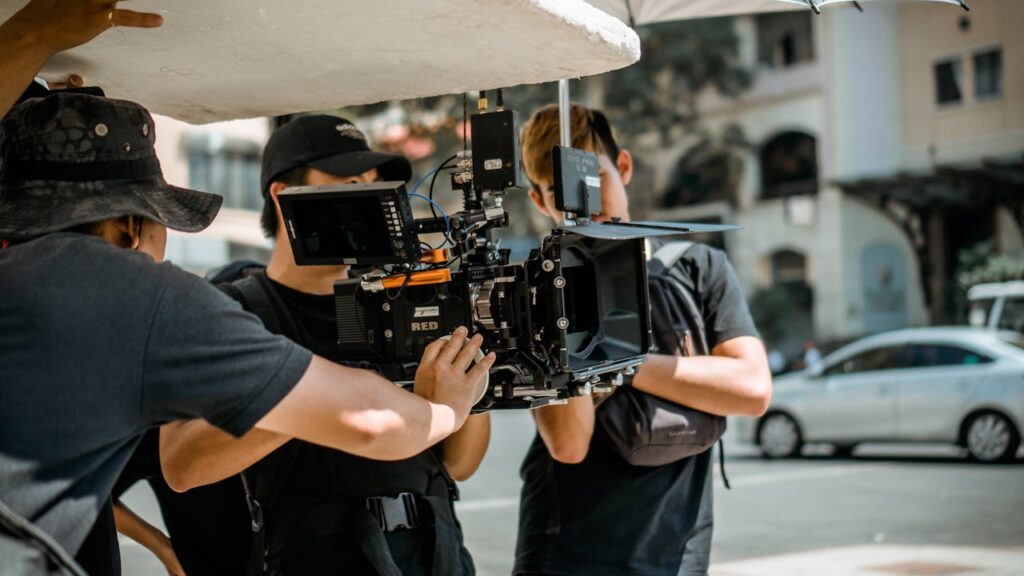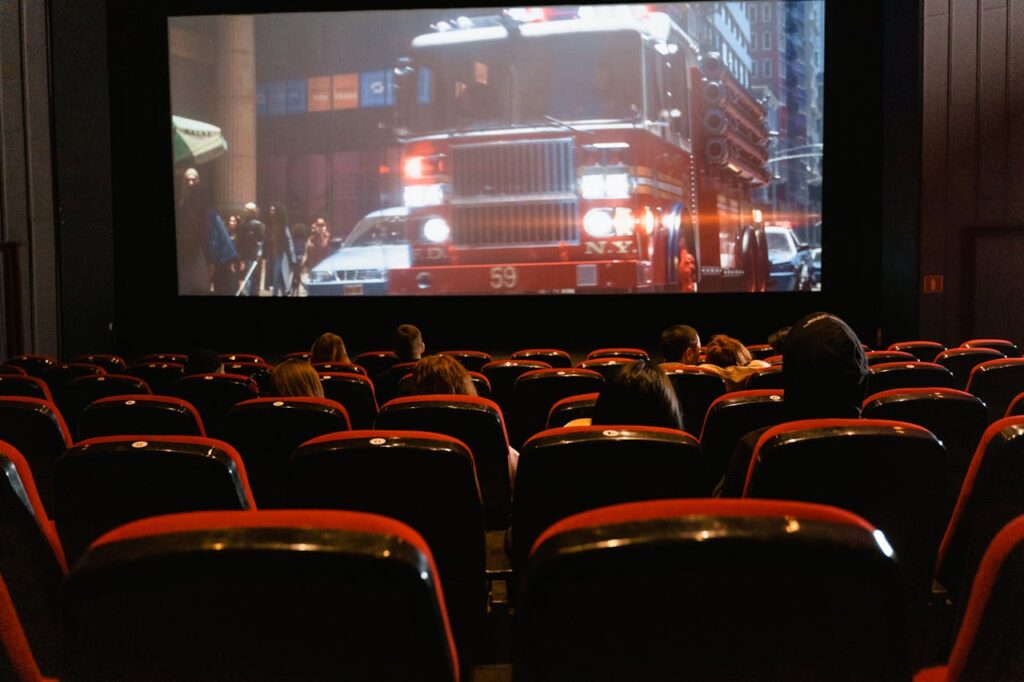It’s hard to write a Film Extended Essay, especially if this is your first research project. As someone who has worked with IB students for many years, I know how difficult it can be to meet the IB Film Studies EE standards while researching, analyzing, and organizing. But if you take the proper steps, you can write an interesting, well-organized essay that meets IB requirements and shows how well you understand the Film Studies course. So, let’s take it step by step.
What Is a Film Extended Essay?
You can examine a film or a collection of films through a particular critical lens in an independent research paper called a Film Extended Essay. A typical movie review is mostly about views and first impressions. But this essay needs an organized and in-depth analysis based on academic research and film theory. Students in IB Film Studies EE are expected to think critically about music, sound design, photography, and the story’s structure to make a strong argument.
This essay isn’t about how “good” or “bad” a film is. Instead, it asks students to investigate why and how directors make their artistic decisions, as well as how these options affect the story and how viewers understand it. Students can have a more complete and intelligent discussion by including historical background, academic views, and direct film analysis in their writings.
From what I’ve seen, the Film Extended Essay is a great way to show how well you know film productions, how well you can do independent research, and how well you can make a solid argument. The most interesting essays are usually written by students who see them as a chance to think critically and analyze something in their way.
What Are the IB Film Studies Extended Essay Requirements?
The IB rules make it clear what is expected for the Film Extended Essay:
- The essay on this subject must meet the standard IB requirements and be between 3,500 and 4,000 words long, excluding references and notes.
- Follow the rules of official academic writing by including an opening, body paragraphs, and a closing.
- Instead of writing about a general film topic, answer a particular research question.
- Be based on independent research, which means that claims must be backed up by academic sources, film theory, and in-depth film analysis, not just personal opinions.
- Follow the rules for MLA, Chicago, or another well-known style when citing and referencing sources.
Students often make the mistake of picking a research question that is too broad. Like, writing about “The Role of Music in Film” is way overly general because it isn’t detailed enough or critical enough. A better question would be, “How does Hans Zimmer’s use of non-traditional instruments in ‘Interstellar’ add to the film’s emotional depth?” This question is clear, can be researched, and lets you make an organized argument.

Academic research is a further necessary condition. The IB expects students to read and consider academic sources like Film Studies courses, articles, and critics. Even though professional film reviewers’ views, like those of Roger Ebert or Pauline Kael, can be helpful, they shouldn’t come before your study and use of film theory.
From what I’ve seen, students do better when they carefully plan their research, outline their points, and follow an organized method. Students who think of the Film Extended Essay as just another piece of writing have difficulty with it. On the other hand, people who get into their topic and think critically make essays that really stand out.
Research and Evidence in a Film Extended Essay
Instead of just using your own thoughts, a well-researched Film Extended Essay is based on reliable academic sources. Your ideas and views are valuable, but they must be backed up by film theory, academic research, and well-known film critics. The IB likes essays that show you can think critically about expert opinions, so using strong evidence is essential for making your argument convincing and scientifically sound.
It’s best to use books, journal papers, and critical studies reviewed by other experts as sources. I always tell my students to do more than blog posts, which aren’t academically challenging. Instead, use these trustworthy sources:
- Books on Film Studies can tell you a lot about cinematic methods and theory. Bordwell’s publications are renowned for thoroughly examining film structure and narrative.
- Well-known critics give in-depth reviews of films with historical background and technical details that may help your argument. However, keep in mind that film reviews should not be the primary source of your research. It should be used as an additional source.
- Interviews, production notes, and behind-the-scenes films are all examples of primary sources for insider knowledge about the director’s creative choices and intentions. These can be very helpful if your essay is about a filmmaker’s unique style or methods.
Also, make sure you use research papers and pieces written by college students. I’ve seen that students’ writings are much better when they use theory, historical, and critical sources, rather than just their own opinion. Using different sources also lets you compare various points of view, improving your argument and showing that you can think critically, a central part of the IB Film Studies EE assessment standards.
How to Organize Your Film Extended Essay?
Like a well-edited film, your essay should have distinct sections that build on one another and flow logically from one concept to another. Paragraphs in the body construct the argument, whereas paragraphs in the introduction provide the groundwork. Let’s take it slow and steady.
Set the Stage
You can hook the reader and provide the groundwork for your essay with a solid start. If your research is on the cinematography of horror films, for instance, you may begin by saying:
- Stress how critical visual methods are for scaring people.
- Introduce the chosen films and explain why they are important.
- Give your thesis, like: “This essay will examine the Shining and Hereditary for its use of low-key lighting and dynamic camera movement in creating psychological dread and unease for the viewer.”
This way of organizing your introduction gives the reader a clear path to follow and shows that you know a lot about the subject.
Formulate a Strong Argument
In the body of your Film Extended Essay, you’ll build on your analysis and back up your thesis with study, proof, and film theory. Every paragraph should build on the one before it, making the flow of thoughts reasonable.
Use the PEEL format in each paragraph to keep your writing organized and strong. For instance, if you are looking at how color is used as a metaphor in Wes Anderson’s movies, one body line could be structured like this:
- Point – Anderson uses different color schemes to make stories and characters’ feelings more vivid.
- Evidence – The Grand Budapest Hotel’s set is mainly made up of soft colors, which give the movie a romantic and playful mood.
- Explanation – These colors make the world feel fake and nostalgic, supporting the movie’s themes of remembering and stories.
- Link – This type of art fits Anderson’s overall way of making worlds, which is the same in all his movies.
This way, each piece stays on topic and critical, which helps you make a coherent case.
Don’t let the stress of the IB curriculum hold you back.
Are you struggling to come up with topic suggestions for your IB Extended Essay? Or do you need help with Internal Assessment?
Our experienced writers can help you choose the perfect topic and assist you with any assignment.
You can buy an Extended Essay tailored to your specific subject and requirements.
Our experienced IB writers are always ready to help.

Use Film Terminology and Critical Analysis
One of the most common mistakes I see students make when discussing movies is not using the correct film terms. The IB wants students to use the language of Film Studies, so using academic terms in their research strengthens your paper. Here are some terms that you should use:
- Mise en scène is how the lights, costumes, and set design are set up in a scene.
- There are two types of sound: diegetic and non-diegetic. Diegetic sound comes from inside the movie (for example, character conversation, footsteps), while non-diegetic sound comes from outside (for example, background music, commentary).
- Editing techniques include cuts, shifts, and montage segments that change the pace and story.
- Intertextuality refers to other movies, genres, or cultural works that change what something means.
For example, don’t use general phrases like “the camera moves a lot” when discussing how the camera moves in action movies. Instead, use exact words: “Saving Private Ryan’s hand-held cinematography gives the scenes a sense of immediacy and chaos that pulls the viewer into the action.” Correct language improves your case and shows you know what film studies is as a subject.
Wrap It Up
The reader should have a strong picture of your conclusion when it’s over. It shouldn’t just repeat what you’ve already written, though. Instead, you should try to:
Restate your main point and how your research supports it in a few words.
- At this point, don’t add any new proof or thoughts.
- Talk about what your research adds to the field of Film Studies. For instance, if you looked into lighting in film noir, you might conclude that your results help show how noir style affects modern film.
A good conclusion should leave you satisfied and sure of what happened, but it should also leave enough room for conversation. For example, you could say, “Further research could look at how modern directors reinterpret classic noir techniques in digital filmmaking.”
As you can see, writing a good conclusion, as well as a whole extended essay on Film Studies, is not easy. So, if you need help with this assignment, you can always contact our experts at IBWritingService.com.

